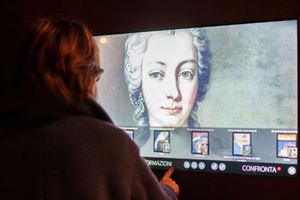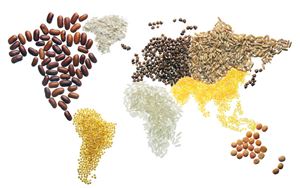More than 60 days since the February general elections, in which no party came out a real winner, Italy finally swore in a new coalition government.
The new government, headed by 45-year-old Enrico Letta, deputy of the centre-left Democratic Party (PD), was put in place on April 28, 2013.
After several failed attempts by former party secretary and PD candidate premier Pierluigi Bersani to ally with Beppe Grillo’s anti-establishment Five Star Movement (M5S), the PD had no choice but to try to form a coalition government with its historic rival, Silvio Berlusconi’s centre-right People of Freedom (PdL) party.
After the difficulties of the presidential election, Bersani resigned and the PD entered into talks with the PdL. Letta was given the backing of the PdL and formed a bipartisan government comprising key institutional figures and politicians from both parties, which has the task of getting the country out of the current political, economic and social stagnancy.
Letta was appointed by Giorgio Napolitano, following the latter’s unprecedented re-election as the president of the Italian Republic in March. Although Florence mayor Matteo Renzi was also rumoured to be under consideration for the immensely important role of heading the new coalition government, it is believed his candidacy was vetoed by Berlusconi himself, who preferred Letta, not only considered more of a moderate but also the nephew of one of Berlusconi’s closest advisors, Gianni Letta.
After almost two months of political paralysis, Letta accepted the mandate to become one of Italy’s youngest prime ministers with ‘a sense of deep responsibility’ given the ‘very difficult, fragile, unprecedented’ situation of the country. Despite being among the youngest leaders in Europe, he has extensive experience in both national and European politics.
Among the tasks ahead for the new government are reviving the stagnant national economy; creating jobs, especially for youth; pushing through key labour, tax and electoral reforms; streamlining government and lowering the cost of politics and public spending; and reducing bureaucracy in both the private and public sectors.
Letta has given his new government 18 months to achieve these objectives.
Although the PD–PdL alliance, which has been dubbed in Italian a governissimo, is backed by former premier Mario Monti’s Civic Choice group, several politicians from the newly allied PD and PdL have been among the most outspoken against it. They join the following parties that have declared themselves part of the opposition: centre-left coalition allies of the PD, Nichi Vendola’s Sinistra, Ecologia e Libertà; centre-right coalition allies of the PdL, Lega Nord; and the M5S.
Letta has formed the youngest government in the history of Italy, with a median age of 53. It is also the ‘pinkest’ with 7 women nominated as minsters, among a host of independent experts and new names in national politics. Among the ‘technicians’ are director of the Bank of Italy, Fabrizio Saccomanni, as minister of the economy; Anna Maria Cancellieri, who served as interior minister under the Monti government, is justice minister; and the labor ministry went to Enrico Giovannini, head of statistics agency ISTAT. Italy’s first black minister, Congo-born Cecile Kyenge was named minister for integration; she has, however, been forced to deal with a slew of racist insults and comments since her swearing in.
In addition to Letta, who was born in Pisa, where he earned a PhD in political science at the Scuola di Sant’Anna, several Tuscan politicians have entered the new government. Former rector of the Scuola Sant’Anna in Pisa, Mara Chiara Carrozza, was appointed minister of Education, University and Research; and economics professor Carlo Trigilia is Italy’s latest minister of Territorial Cohesion.
Three Florentines have been nominated as undersecretaries: Erasmo D’Angelis, who is the president of Publiacqua and was appointed to the Ministry of Infrastructure and Transport; Lapo Pistelli, a member of the Parliamentary Assembly of the PD, was named undersecretary of the Foreign Affairs Ministry; and Gabriele Toccafondi, deputy of the PdL, is the new undersecretary for Education, University and Research.







